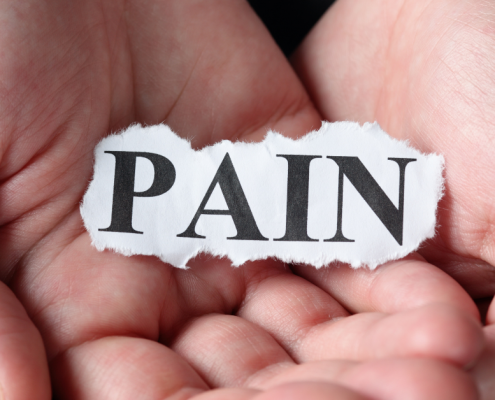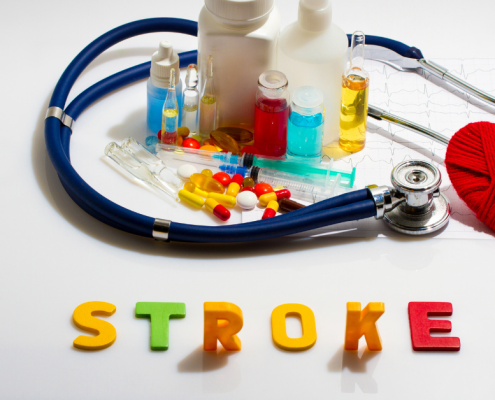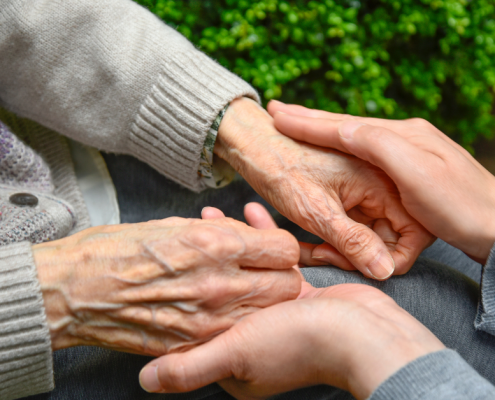
A Comprehensive Guide to the Benefits of Physical Therapy
Physical therapy, also physiotherapy, refers to a branch of healthcare that focuses on treating and rehabilitating physical injuries and conditions. It is provided by a trained professional physiotherapist, who uses a wide range of techniques, including exercises, to restore an individual’s movement and function, enhancing their overall quality of life.
In this post, we will delve deeper into the importance of physical therapy in the elderly, shedding light on its vital role in rekindling mobility and independence among seniors. Without further ado, let’s get into it!

6 Healthy Food Choices that Prevent Stroke
A stroke can lead to physical disabilities, cognitive impairments or death of the individual. The impact is often emotional for the families as they might face financial struggles due to medical bills and the prospect of lifestyle adjustments. For that reason, it is essential to prioritize stroke prevention by living a healthier lifestyle and going for regular medical check-ups to ensure early intervention and minimised devastating effects of the medical condition.

Managing Chronic Pain in Older Adults: Holistic Approaches for Pain Relief
Under normal circumstances, pain subsides once an illness runs its course or an injury heals. However, chronic pain can last for months or even years after the known trigger has healed completely. According to medical experts, chronic pain is defined as lasting for three months or more and is prevalent in older adults due to age-related issues and other degenerative conditions.Seniors experiencing the condition face various physical and psychological challenges, which significantly affect their overall well-being. For that reason, managing chronic pain is an important step towards improving their health and quality of life.

Promoting Brain Health in Seniors: Activities and Strategies for Cognitive Stimulation
As people age, maintaining brain health becomes increasingly critical to enhancing overall well-being. That is especially important for seniors as cognitive functions have a significant impact on their ability to engage in regular activities and overall independence. Unfortunately, aging can have natural degenerative effects on various parts of our body, including the brain and, consequently, cognitive abilities. Evidence of this decline includes increased forgetfulness in old age and reduced attention and focus. That’s why, as a senior, you must learn how to keep you brain healthy.In this post, we will delve deep into the importance of maintaining a healthy brain for seniors, along with a few ways to delay the onset of cognitive decline. Let’s explore!

Emotional Support for Bedridden Individuals: Strategies for Coping with Isolation and Depression
The challenges that come with being bedridden extend far beyond physical limitations. If an individual is confined to their bed due to an injury, illness or age-related issues, every aspect of their life takes a huge blow. For instance, they might be unable to perform regular tasks, such as cleaning or walking their dog, due to mobility restrictions. Besides causing physical discomfort, the inability to move freely can also result in helplessness and physical signs of depression.

Stroke Prevention: Tips for Reducing the Risk of Recurrence
Stroke is one of the leading causes of disability and death, especially in older adults. Additionally, individuals who have already experienced a stroke are at a higher risk of recurrence, which is why prevention is paramount. But before we get into reducing the risk of occurrence, it is essential to understand what can cause a stroke.

Navigating Dietary Restrictions in Seniors: Gluten-Free, Lactose-Free, and Low-Sodium Options
As our loved ones grow older, they experience significant changes in their nutritional needs, which increases their likelihood of developing dietary restrictions. Some of the most common limitations in seniors today include gluten intolerance, lactose intolerance and low-sodium dietary needs.

Understanding dementia behaviours: A guide on help for the elderly living at home and their families
Dementia is a serious and often shamed illness associated with many misconceptions, so today we present our guide created to provide help for the elderly living at home. We discuss the importance of appropriate home care for the elderly in their own homes, as well as the challenges of memory loss and living with dementia.

The benefits of pet therapy for the elderly
Pet therapy is one of the most successful forms of therapy for the elderly. Having therapy pets minimises feelings of loneliness and helps maintain mental health. Learn about the benefits of pet therapy for the elderly and help yourself or your loved ones.

How to improve senior’s memory? – top brain activities and dementia memory aids
Memory loss in old age is a normal condition to some extent, but sometimes it can be a sign of dementia. However, it is not a no-go matter, as today you will learn the best ideas for brain actives, beneficial dementia memory aids and advice on how to help loved ones suffering from memory loss in old age.









